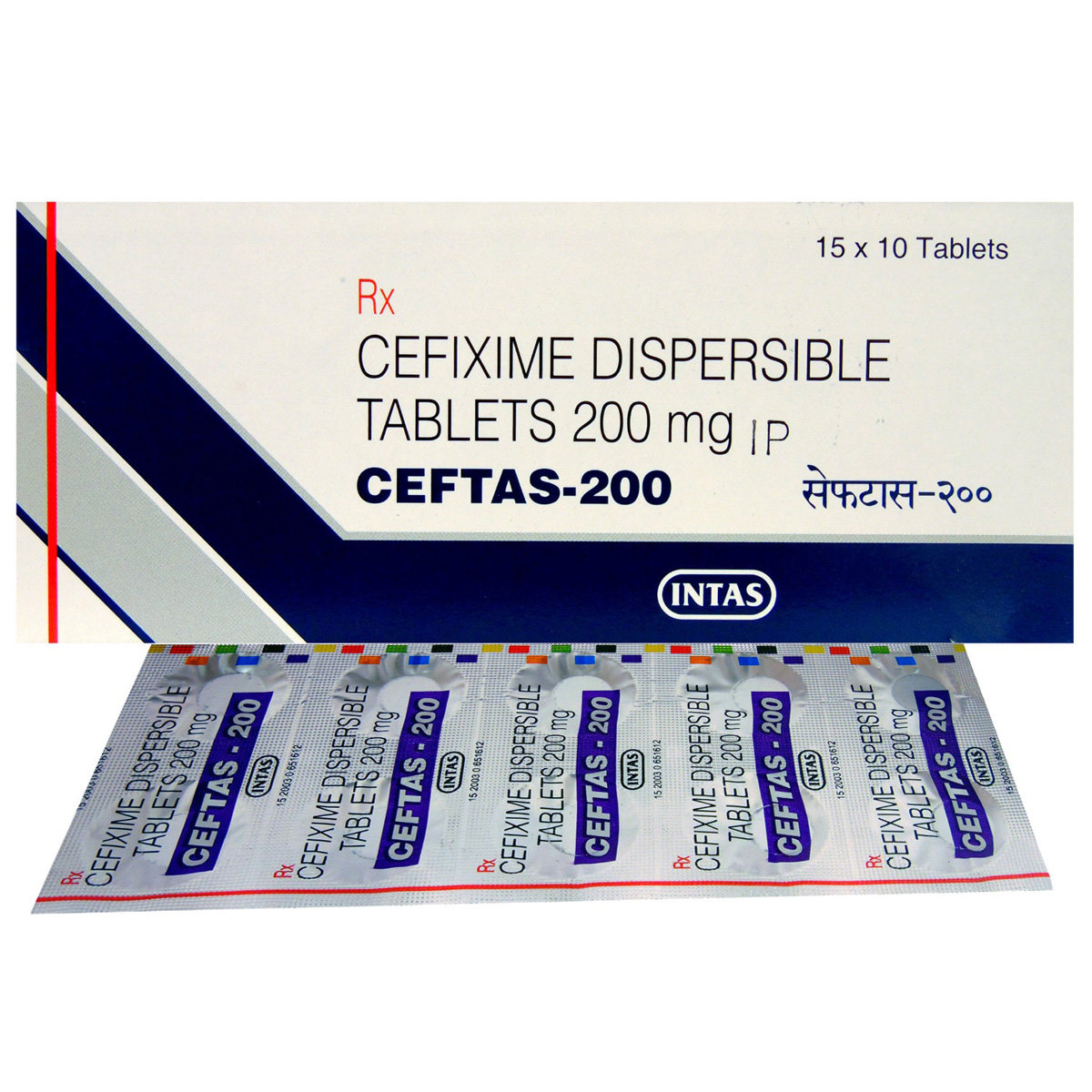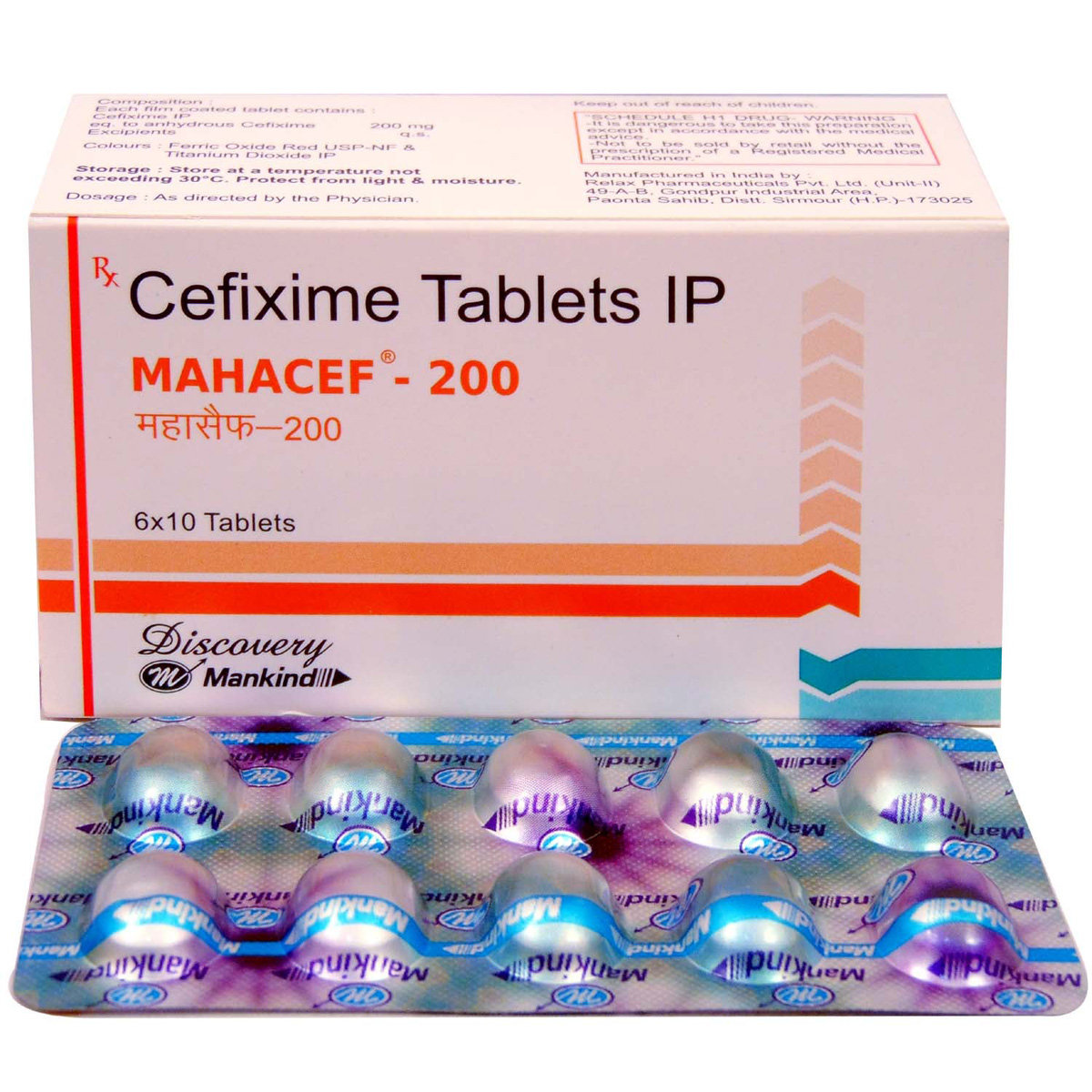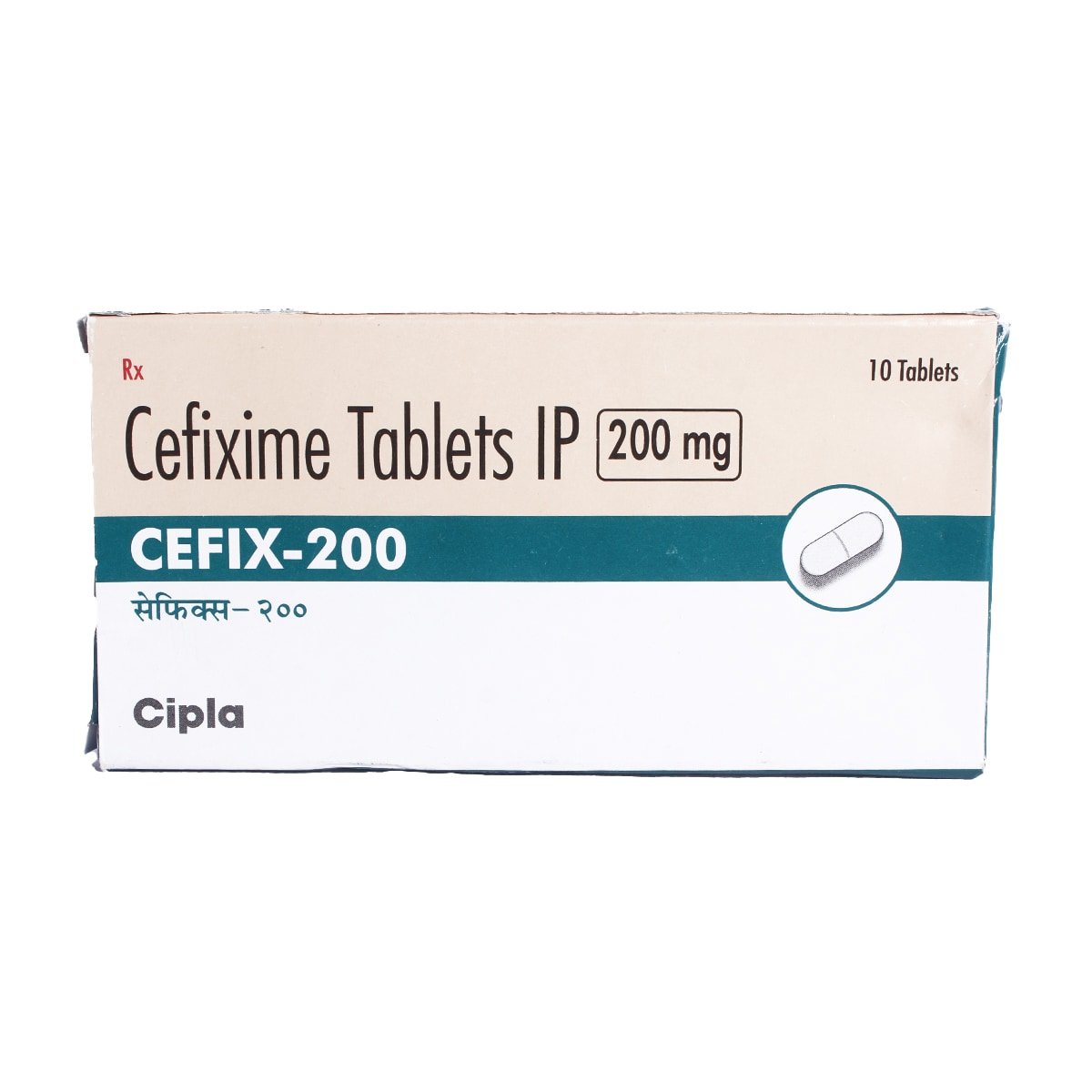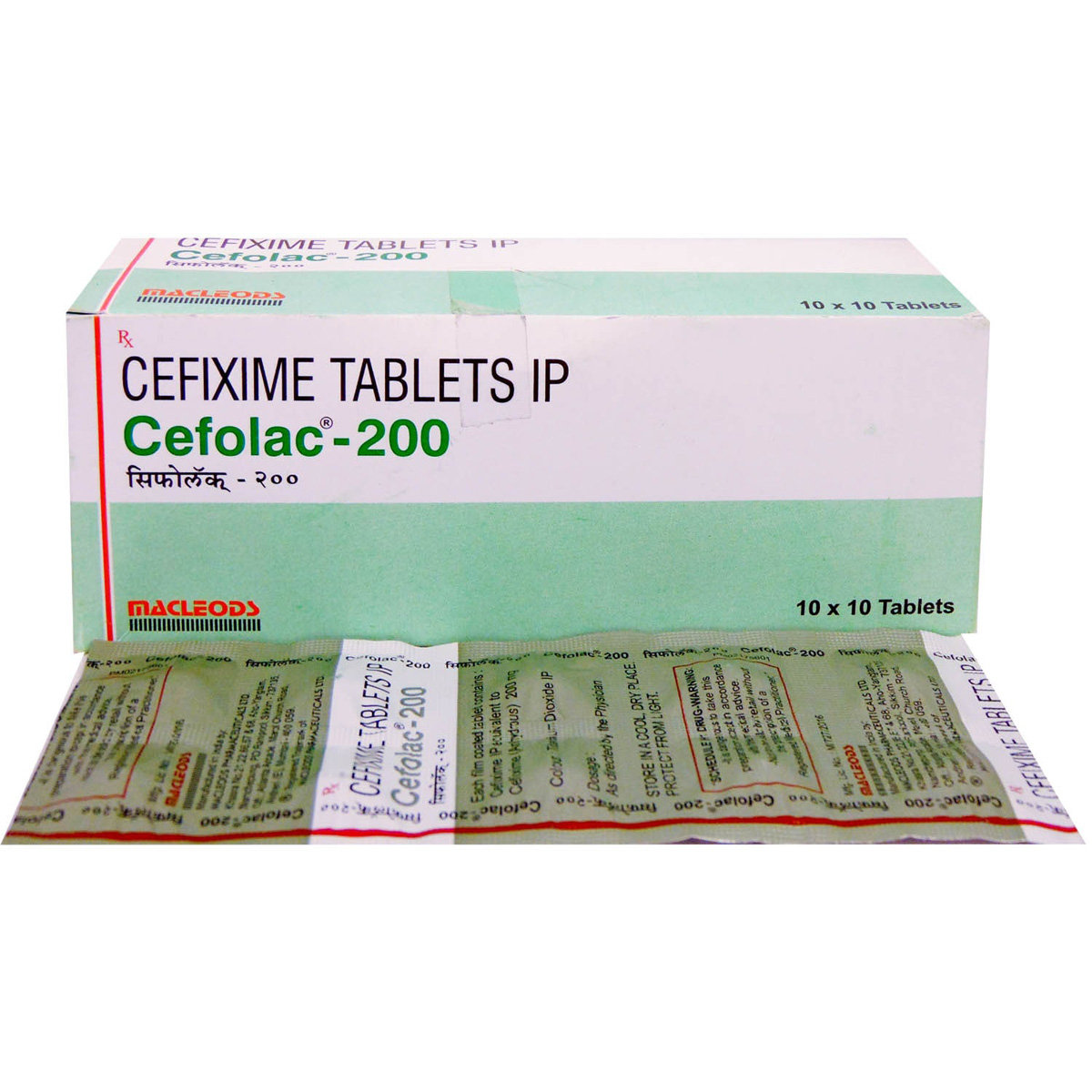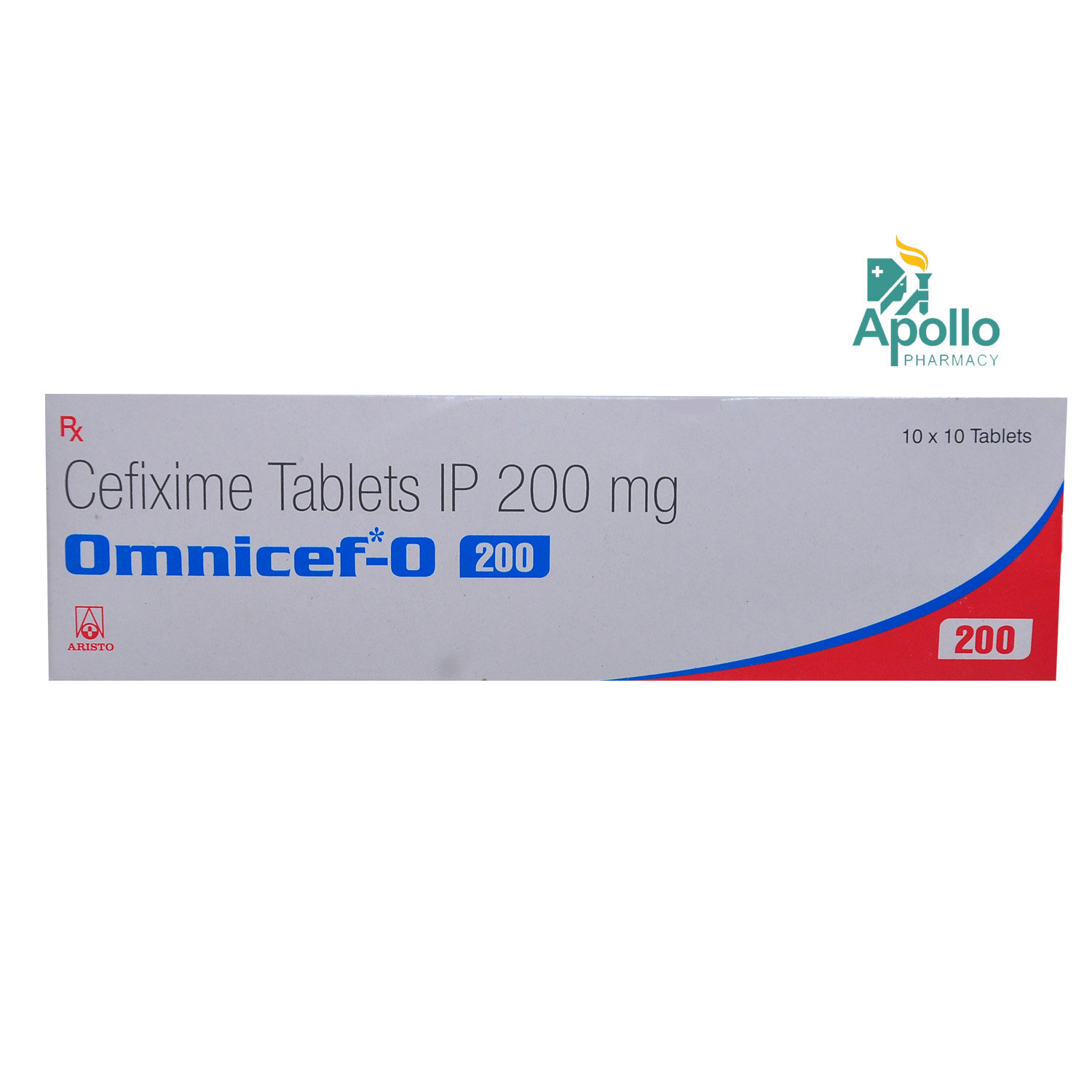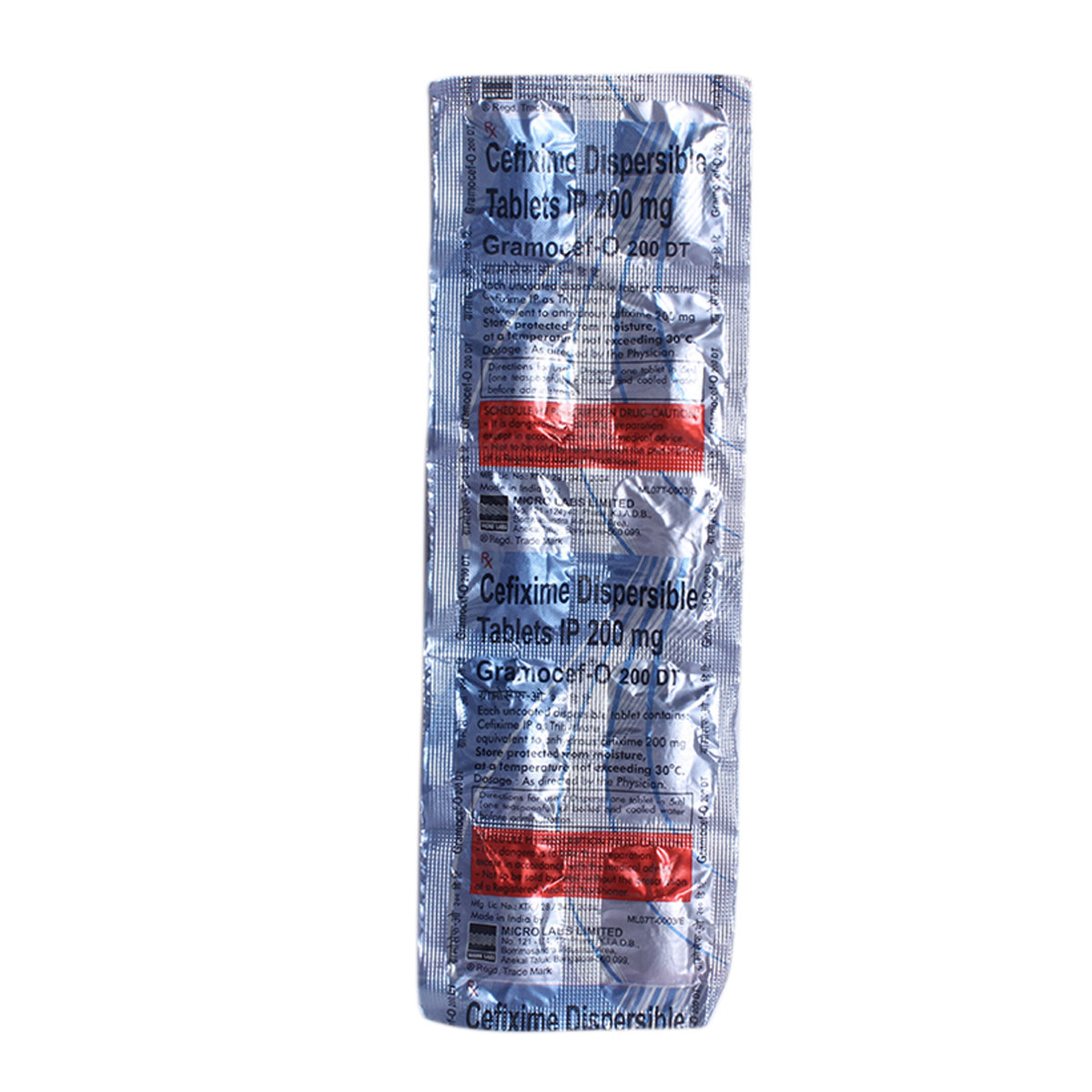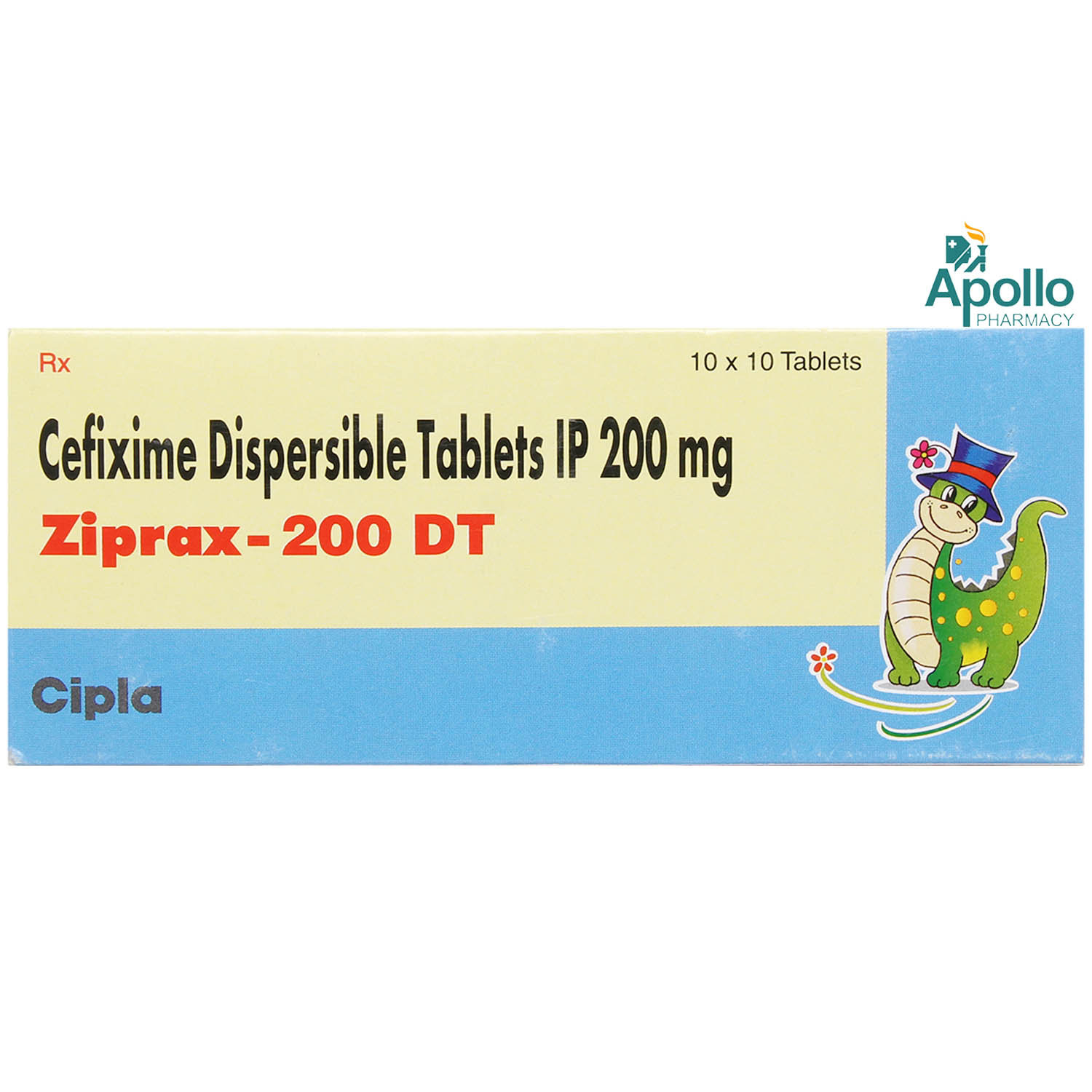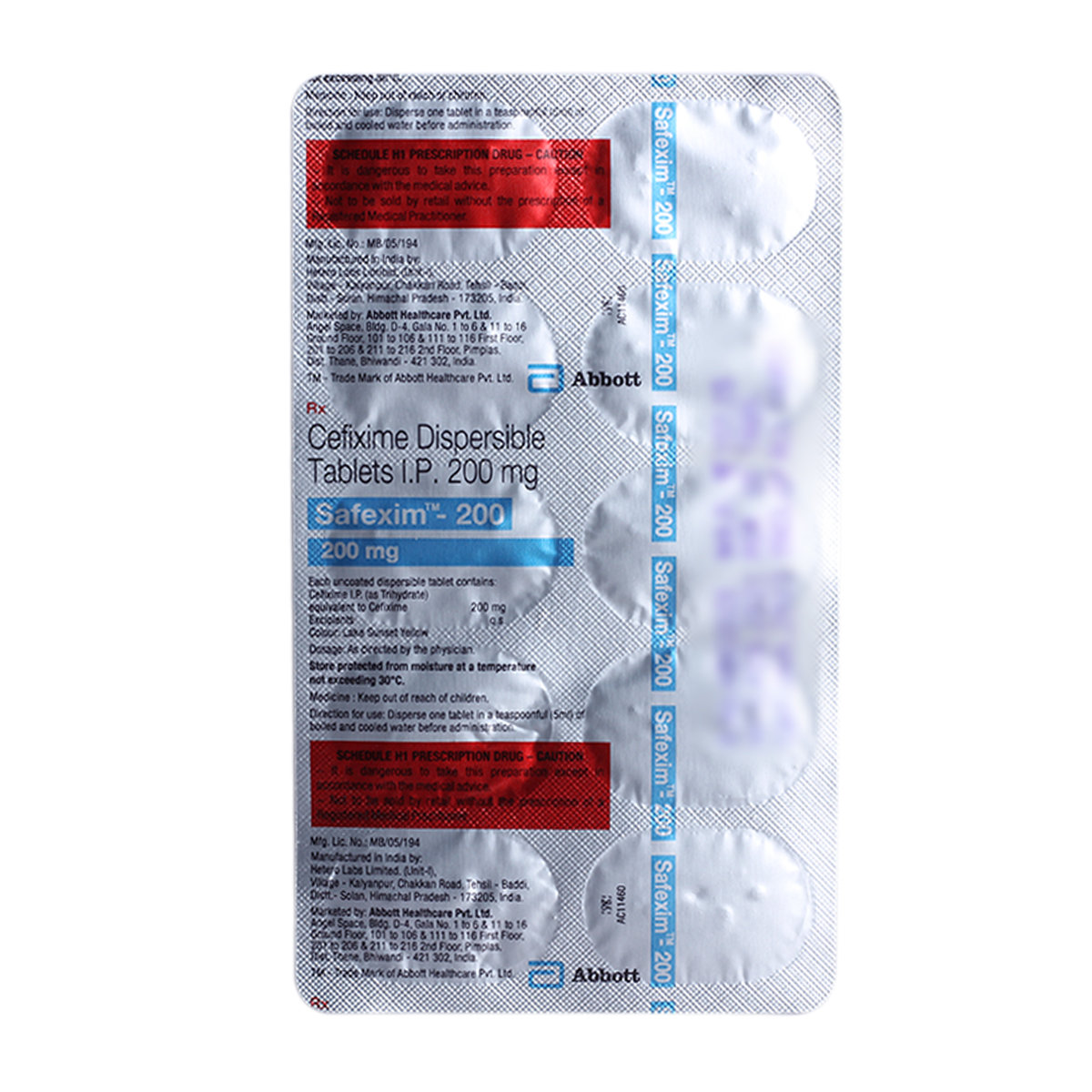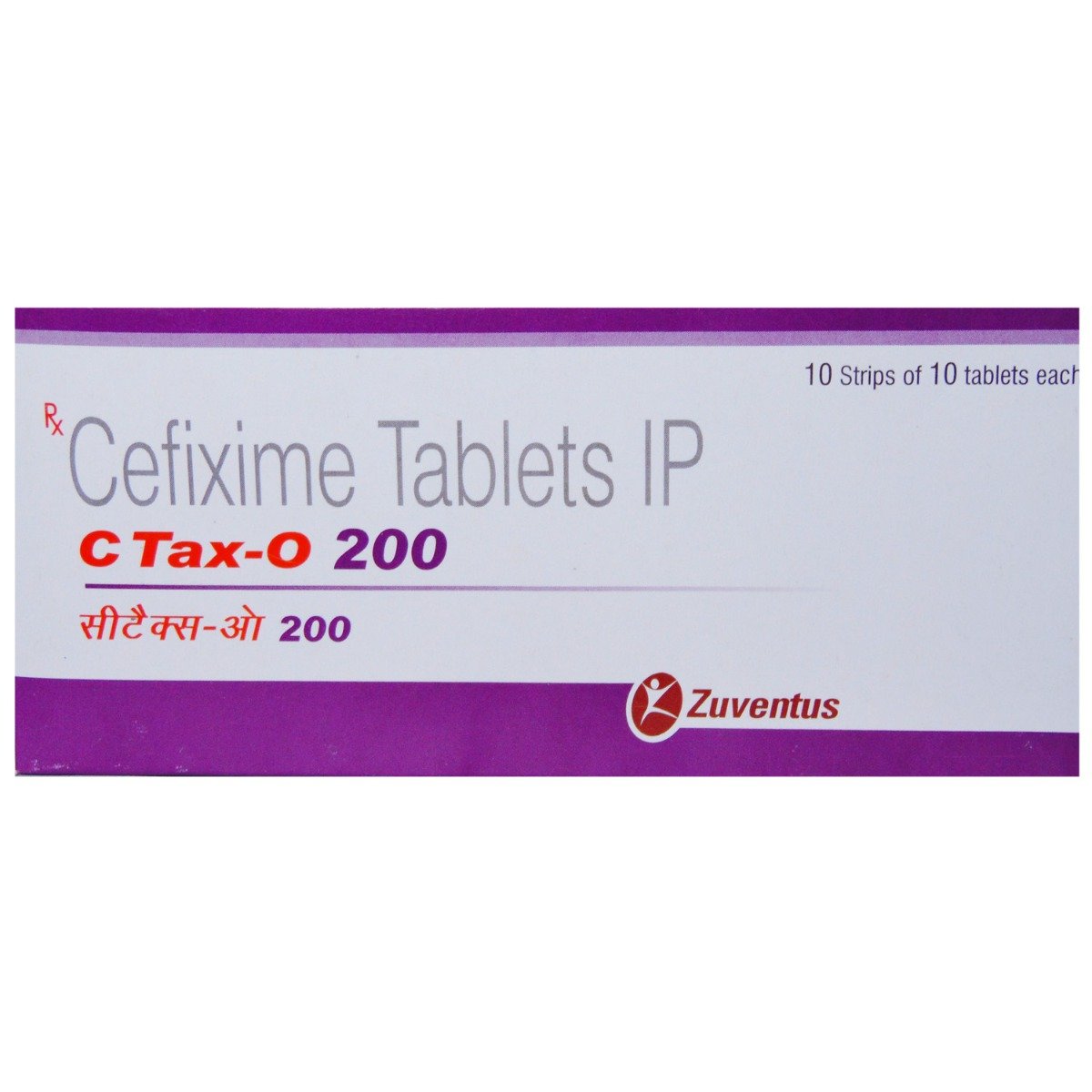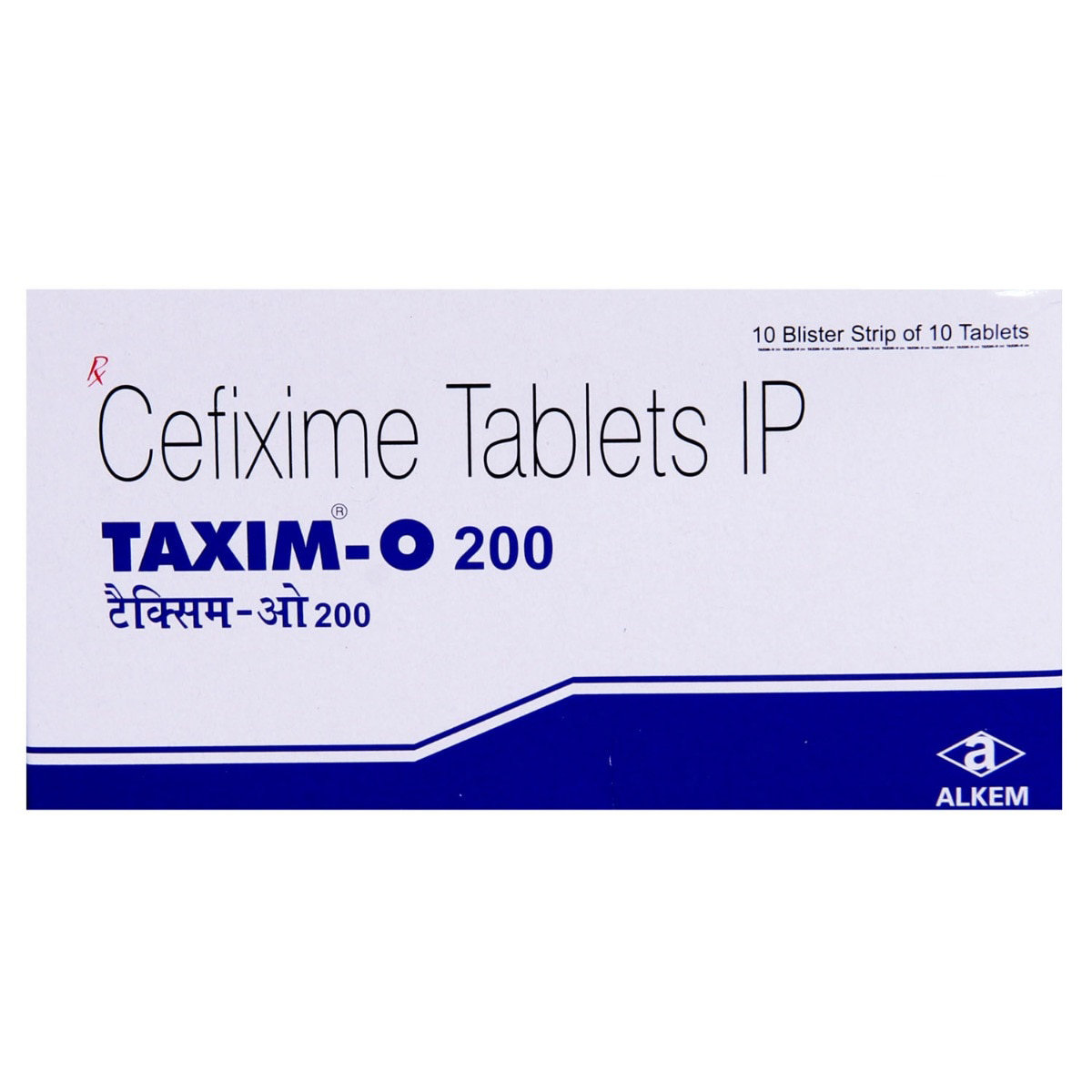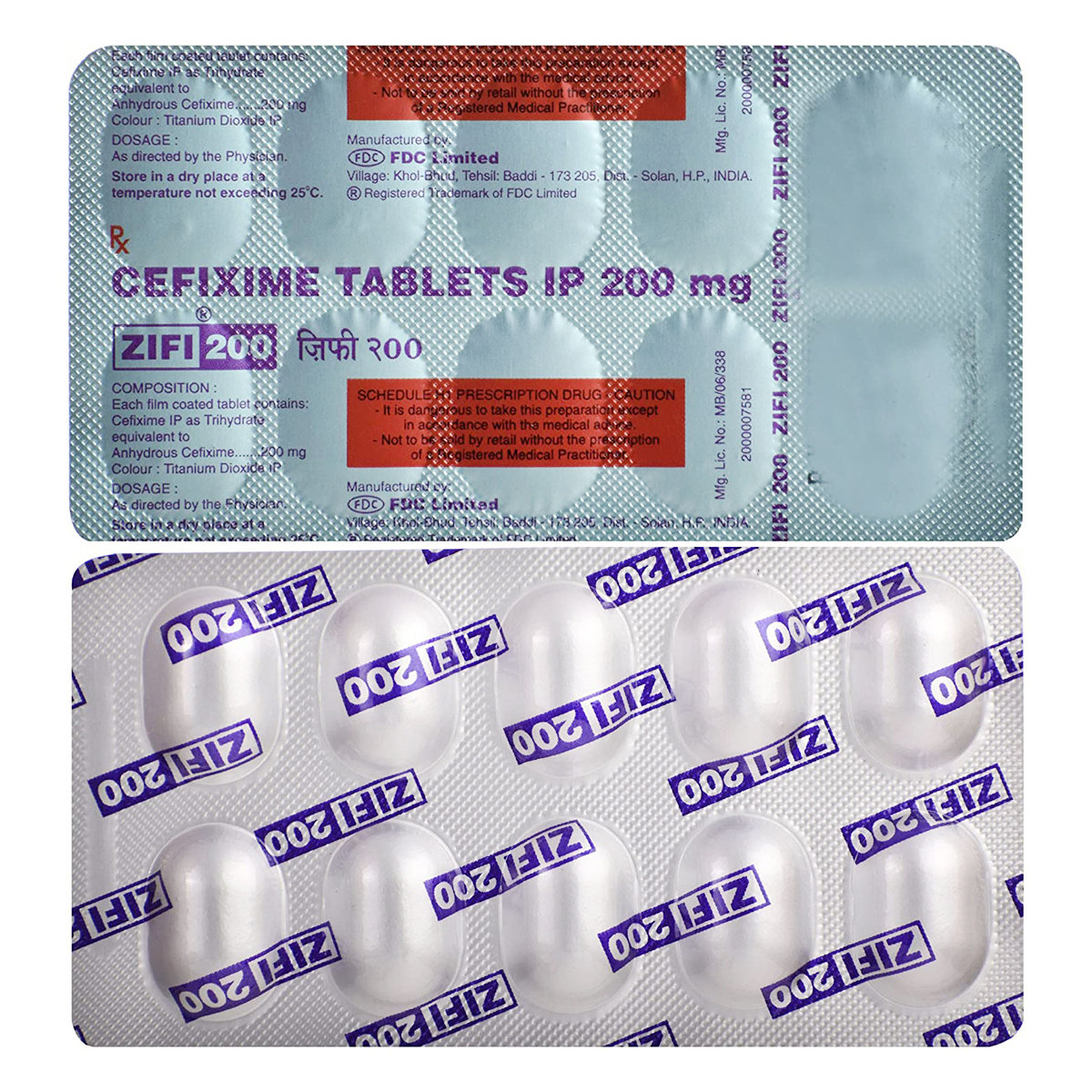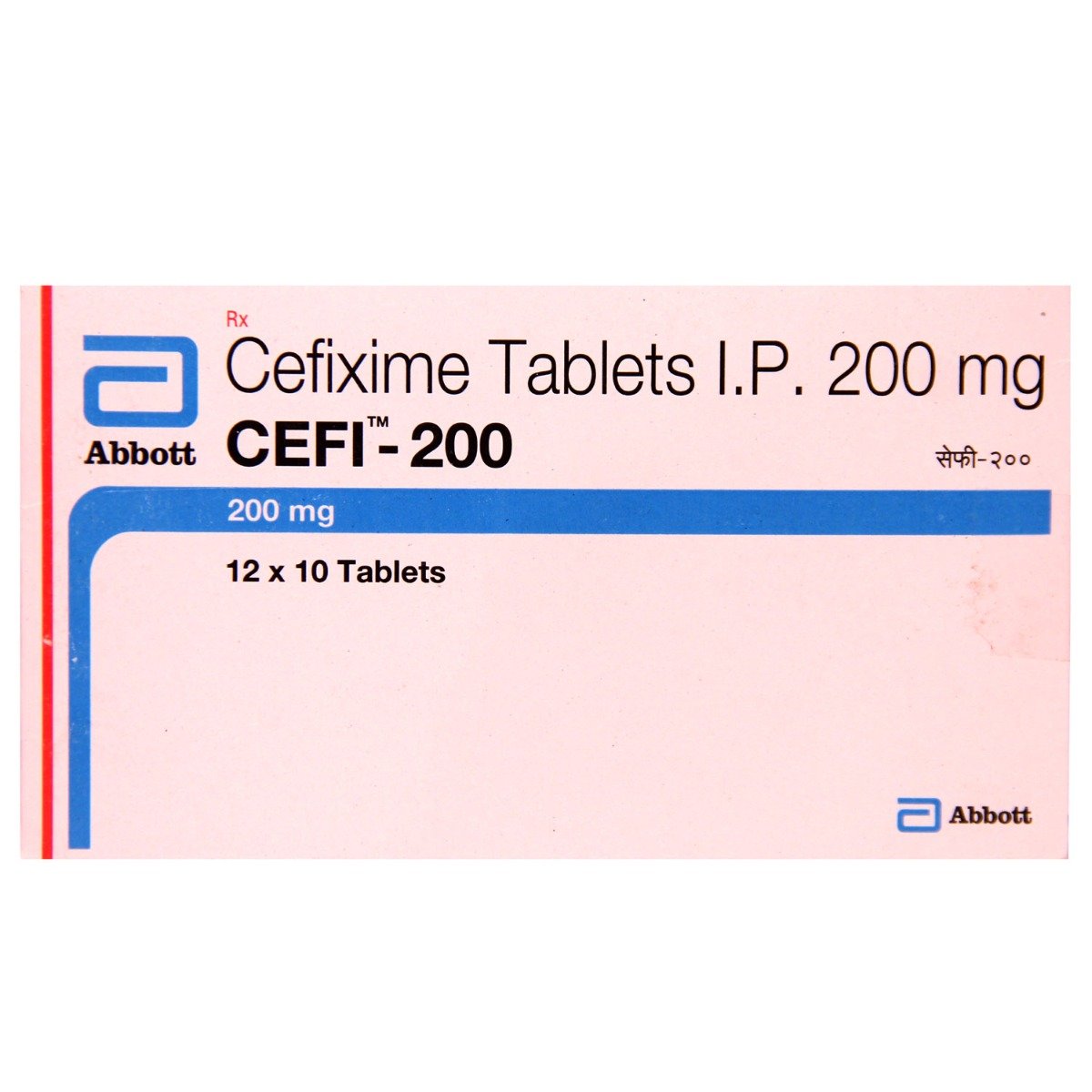Antibact 200 mg Tablet 10's
MRP ₹91.1
(Inclusive of all Taxes)
₹13.7 Cashback (15%)
Provide Delivery Location
Online payment accepted
 Prescription drug
Prescription drugWhats That
Composition :
Manufacturer/Marketer :
Consume Type :
Expires on or after :
Return Policy :
NPPA :
About Antibact 200 mg Tablet
Antibact 200 mg Tablet belongs to a group of cephalosporin antibiotics. It is used to treat susceptible organisms (bacteria)-caused infections of the ear, nose, sinuses (sinusitis), throat (tonsillitis, pharyngitis), chest and lungs (bronchitis, pneumonia) and urinary system (cystitis and kidney infections). Additionally, it is also prescribed to treat uncomplicated gonorrhoea (cervical/urethral).
Antibact 200 mg Tablet contains Cefixime that works by inhibiting of cell wall synthesis. In turn, Antibact 200 mg Tablet weakens and destroys the bacterial cell wall, leading to death. As a result, Antibact 200 mg Tablet helps to treat bacterial infections.
Take Antibact 200 mg Tablet as directed by the physician. Sometimes, you may experience common side effects such as diarrhoea, nausea, loose stools, abdominal pain, dyspepsia, indigestion, and vomiting. Most of these side effects do not require medical attention and resolve gradually over time. However, you are advised to talk to your doctor if you experience these side effects persistently.
Do not take Antibact 200 mg Tablet if you are allergic to cefixime, other cephalosporin antibiotics, or any other ingredients of this medicine. Before starting the Antibact 200 mg Tablet , please inform your doctor if you have colitis (inflammation of the colon's inner lining), renal dysfunction, liver disease, and seizure disorders. Do not take this medicine on your own as self-medication may lead to antibiotic resistance in which antibiotics fail to act against specific bacterial infections. If you are pregnant or breastfeeding, think you may be pregnant, or are planning to have a baby, ask your doctor for advice before taking the Antibact 200 mg Tablet . Drive only if you are alert as Antibact 200 mg Tablet may cause dizziness.
Uses of Antibact 200 mg Tablet
Directions for Use
Tablet/capsule: Swallow it as a whole with water; do not crush, break or chew it. Dispersible Tablet: Check the label for directions before use. Disperse the tablet in the prescribed amount of water and swallow the contents. Do not crush, chew or swallow as a whole. Liquid/Suspension: Shake the bottle well before use. Check the label for directions and take Antibact 200 mg Tablet in doses as prescribed by your doctor with the help of a measuring cup/dropper provided by the pack. Powder/granules: Check the label for directions before use. Mix the powder/granules in water, mix well and drink immediately.
Key Benefits
Antibact 200 mg Tablet is a short-term medication for a wide range of bacterial infections. It prevents the growth of bacteria by stopping the formation of a protective covering which is vital for its growth. It prevents and treats bacterial infections like ear, nose, sinuses (sinusitis), throat (tonsillitis, pharyngitis), chest and lungs (bronchitis, pneumonia) and urinary system (cystitis and kidney infections). Additionally, it is also prescribed to treat uncomplicated gonorrhoea (cervical/urethral).
How Antibact 200 mg Tablet Works
Storage
- Drink water or other clear fluids.
- To prevent worsening of pain, limit intake of tea, coffee, or alcohol.
- Include bland foods like rice, toast, crackers, and rice in your diet.
- Avoid lying down immediately after eating as it may cause indigestion or heartburn.
- Avoid acidic and spicy food as it may cause indigestion.
- Chest pain may last for a while and needs immediate medical attention as it is a significant health issue to be attended to.
- Take rest and refrain from doing physical activity for a while, and restart after a few days.
- Try applying an ice pack to the strained area for at least 20 minutes thrice a day. Ice pack thus helps reduce inflammation.
- Sit upright and maintain proper posture if there is persistent chest pain. • Use extra pillows to elevate your position and prop your chest up while sleeping.
- Inform your doctor about dry mouth symptoms. They may adjust your medication regimen or prescribe additional medications to manage symptoms.
- Drink plenty of water throughout the day to help keep your mouth moist and alleviate dry mouth symptoms.
- Chew sugar-free gum or candies to increase saliva production and keep your mouth moisturized.
- Use saliva substitutes, such as mouthwashes or sprays, only if your doctor advises them to help moisturize your mouth and alleviate dry mouth symptoms.
- Avoid consuming smoking, alcohol, spicy or acidic foods, and other irritants that may aggravate dry mouth symptoms.
- Schedule regular dental check-ups to keep track of your oral health and handle any dry mouth issues as they arise.
- Regularly brush and floss your teeth.
- Rinse your mouth with water and baking soda a solution to neutralize acid in the mouth. This makes your food taste as it should.
- Drink plenty of water or non-caffeinated drinks to prevent dry mouth which may lead to altered taste.
- Try ginger, peppermint, fruit or green teas, lemonade, ginger ale or fruit juice to help mask unpleasant tastes.
- Try sucking on sugar-free ice pops or ice cubes to prevent dry mouth.
- Rest well; get enough sleep.
- Eat a balanced diet and drink enough water.
- Manage stress with yoga and meditation.
- Limit alcohol and caffeine.
- Physical activities like walking or jogging might help boost energy and make you feel less tired.
- Wear cotton underwear and loose pants to facilitate better airflow.
- Try meditation and yoga to reduce stress and improve balance hormones.
- Eat foods like yogurt or kefir to support vaginal health.
- Gently clean the genital area with soap and lukewarm water.
- Avoid fragrant soap, bubble baths, and douches; these can also irritate.
- Tell your doctor about any medications or supplements you’re taking, as they may affect vaginal discharge treatments.
Drug Warnings
Antibact 200 mg Tablet has occasionally been associated with hypersensitive reactions that result in shock and mortality. If a reaction happens, stop using it. Do not take Antibact 200 mg Tablet if you are allergic to Cefixime or other cephalosporin antibiotics, or any of the other ingredients of this medicine. Talk to the doctor before taking Antibact 200 mg Tablet if you have seizures, liver or renal dysfunction, heart disorder, and inflammation of the colon's inner lining (colitis). Do not take Antibact 200 mg Tablet without first consulting the doctor if you are pregnant, planning for pregnancy or breastfeeding. Drive only if you are alert as Antibact 200 mg Tablet may cause dizziness. Antibact 200 mg Tablet may interact with certain tests such as glucose (sugar) in urine and give unusual results. Therefore, inform the doctor that you are using Antibact 200 mg Tablet before undergoing any tests.
Drug-Drug Interactions
Drug-Drug Interactions
Login/Sign Up
Using Mesoridazine together with Antibact 200 mg Tablet can increase the risk of an irregular heart rhythm that may be serious.
How to manage the interaction:
Taking Mesoridazine with Antibact 200 mg Tablet is not recommended, please consult your doctor before taking it. You should seek immediate medical attention if you develop sudden dizziness, lightheadedness, fainting, shortness of breath, or heart palpitations. Do not stop using any medications without talking to a doctor.
Coadministration of Antibact 200 mg Tablet with Quinidine can increase the risk or severity of irregular heart rhythms.
How to manage the interaction:
Taking Antibact 200 mg Tablet with Quinidine together is generally avoided as it can result in an interaction, it can be taken if your doctor has advised it. However, if you experience sudden dizziness, lightheadedness, fainting, shortness of breath, chest pain or tightness, rapid heartbeat, or memory loss, contact a doctor immediately. Do not discontinue any medications without consulting a doctor.
Coadministration of Antibact 200 mg Tablet with Pimozide can increase the risk or severity of irregular heart rhythms.
How to manage the interaction:
Taking Antibact 200 mg Tablet with Pimozide together can result in an interaction, it can be taken if your doctor has advised it. However, if you experience sudden dizziness, lightheadedness, fainting, shortness of breath, chest pain or tightness, rapid heartbeat, or memory loss, contact a doctor immediately. Do not discontinue any medications without consulting a doctor.
Coadministration of Antibact 200 mg Tablet with Saquinavir can increase the risk or severity of irregular heart rhythms.
How to manage the interaction:
Taking Antibact 200 mg Tablet with Saquinavir together is generally avoided as it can result in an interaction, it can be taken if your doctor has advised it. However, if you experience sudden dizziness, lightheadedness, fainting, shortness of breath, chest pain or tightness, rapid heartbeat, or memory loss, contact a doctor immediately. Do not discontinue any medications without consulting a doctor.
Using bepridil together with Antibact 200 mg Tablet drugs can increase the risk of an irregular heart rhythm that may be serious.
How to manage the interaction:
Taking Antibact 200 mg Tablet with Bepridil can cause an interaction, please consult your doctor before taking it. You should seek immediate medical attention if you develop sudden dizziness, lightheadedness, fainting, or fast or pounding heartbeats. Do not stop using any medications without consulting a doctor.
Coadministration of Antibact 200 mg Tablet with Dronedarone can increase the risk or severity of irregular heart rhythm.
How to manage the interaction:
Taking Antibact 200 mg Tablet with Dronedarone together can result in an interaction, it can be taken if your doctor has advised it. However, if you experience sudden dizziness, lightheadedness, fainting, shortness of breath, chest pain or tightness, rapid heartbeat, or memory loss, contact a doctor immediately. Do not discontinue any medications without consulting a doctor.
Using halofantrine together with Antibact 200 mg Tablet can increase the risk of an irregular heart rhythm that may be serious.
How to manage the interaction:
Taking Antibact 200 mg Tablet with Halofantrine can cause an interaction, please consult your doctor before taking it. You should seek immediate medical attention if you develop sudden dizziness, lightheadedness, fainting, shortness of breath, or heart palpitations. Do not stop using any medications without talking to a doctor.
The combination of Amiodarone and Antibact 200 mg Tablet may significantly increase the risk of an abnormal heart rhythm.
How to manage the interaction:
Although Amiodarone and Antibact 200 mg Tablet interact, it can be taken if prescribed by a doctor. If you get dizziness, lightheadedness, fainting, or fast or racing heartbeats, consult a doctor. Do not stop taking any medications without consulting a doctor.
Coadministration of Antibact 200 mg Tablet with Thioridazine can increase the risk or severity of irregular heart rhythms.
How to manage the interaction:
Taking Antibact 200 mg Tablet with Thioridazine together is generally avoided as it can result in an interaction, it can be taken if your doctor has advised it. However, if you experience sudden dizziness, lightheadedness, fainting, shortness of breath, chest pain or tightness, rapid heartbeat, or memory loss, contact a doctor immediately. Do not discontinue any medications without consulting a doctor.
Coadministration of Antibact 200 mg Tablet with Sotalol can increase the risk or severity of irregular heart rhythms.
How to manage the interaction:
Taking Antibact 200 mg Tablet with Sotalol together is generally avoided as it can result in an interaction, it can be taken if a doctor has advised it. If you experience sudden dizziness, lightheadedness, fainting, shortness of breath, chest pain or tightness, rapid heartbeat, or memory loss, contact a doctor. Do not discontinue any medications without consulting a doctor.
Drug-Food Interactions
Drug-Food Interactions
Login/Sign Up
Avocado, Beetroot, Cereals, Cheese, Chicken, Black Beans, Eggs, Clams, Chickpea, Whole Grains, Shellfish, Spinach, Salmon, Red Meat, Oysters, Potatoes, Kidney Beans, Mackerel, Milk, Kale, Tuna, Yogurt, Liver, Low-Fat Milk, Trout, Fortified Breakfast Cereal, Fish, Beef
How to manage the interaction:
Antibact 200 mg Tablet and a multivitamin with minerals should not be taken together orally. Products containing magnesium, aluminium, calcium, iron, or other minerals may decrease the effects of Antibact 200 mg Tablet. If at all possible, avoid taking multivitamins containing minerals while receiving Antibact 200 mg Tablet treatment. Do not discontinue any medications without first consulting your doctor.
Diet & Lifestyle Advise
After taking the full course of Antibact 200 mg Tablet , probiotics should be taken to restore some of the healthy bacteria in the intestines that may have been killed. Taking probiotics after antibiotic treatment can reduce the risk of antibiotic-associated diarrhoea. Certain fermented foods like yoghurt, cheese, sauerkraut, kombucha and kimchi can help restore the intestine's good bacteria.
Include more fibre-enriched food in your diet, as it can be easily digested by gut bacteria, which helps stimulate their growth. Thus, fibre foods may help restore healthy gut bacteria after a course of antibiotics. Whole grains like whole-grain bread and brown rice should be included in your diet.
Avoid taking too much calcium, iron-enriched foods and drinks as it might affect the working of Antibact 200 mg Tablet .
Avoid alcoholic beverages with Antibact 200 mg Tablet as it can dehydrate and affect your sleep. this can make it harder for your body to aid the Antibact 200 mg Tablet in fighting off infections.
Side Effects of Antibact 200 mg Tablet
Diarrhoea
Nausea
Loose stools
Abdominal pain
Dyspepsia or indigestion
Vomiting
Habit Forming
Therapeutic Class
All Substitutes & Brand Comparisons
RX
Not for online saleCeftas-200 Tablet 10's
Intas Pharmaceuticals Ltd
₹99
(₹8.91 per unit)
8% COSTLIERRX
Not for online saleMahacef-200 Tablet 10's
Mankind Pharma Pvt Ltd
₹99
(₹8.91 per unit)
8% COSTLIERRX
Not for online saleCefix-200 Tablet 10's
Cipla Ltd
₹102.5
(₹9.23 per unit)
12% COSTLIER
Author Details
We provide you with authentic, trustworthy and relevant information
Drug-Diseases Interactions
Drug-Diseases Interactions
Login/Sign Up
FAQs
Drug-Drug Interactions Checker List
- BCG VACCINE
- CHOLERA VACCINE
- TYPHOID VACCINE
- WARFARIN
- CARBAMAZEPINE
Disease/Condition Glossary
Bacterial infection: A bacterial infection is a condition in which harmful bacteria enter, multiply, and infect our body. It can target any body part and multiple very quickly. When you get infected with bacteria, you can experience generalized symptoms like fevers, chills, and fatigue. Bacteria are of various forms comprising commonly spherical, rod, and spiral-shaped. Bacterial infections vary from minor illnesses like sore throat and ear infections to severe brain infections like meningitis and encephalitis. Few harmful bacteria that cause infections include Streptococcus, Staphylococcus, and E.coli. Anyone can become infected with a bacterial infection. But, people with weak immune systems or taking immunosuppressive medicine can make you more prone to bacterial infection.

Have a query?
Alcohol
Safe if prescribed
It is unknown whether Antibact 200 mg Tablet interacts with alcohol. However, as a precautionary measure, it is advisable not to take or limit alcohol.
Pregnancy
Consult your doctor
Antibact 200 mg Tablet should not be used during pregnancy unless clearly necessary. Your doctor will weigh the benefits and potential risks before prescribing it. Please consult your doctor.
Breast Feeding
Consult your doctor
Antibact 200 mg Tablet should be administered to nursing mothers only if the benefits of therapy are judged to outweigh the potential risks to the infant. Hence it is best to consult a doctor before taking the Antibact 200 mg Tablet .
Driving
Safe if prescribed
Caution should be exercised; Antibact 200 mg Tablet usually causes drowsiness and confusion, affecting driving ability.
Liver
Consult your doctor
Antibact 200 mg Tablet to be taken with caution, especially if you have a history of liver diseases/conditions. The dose may have to be adjusted by your doctor.
Kidney
Consult your doctor
Antibact 200 mg Tablet to be taken with caution, especially if you have a history of Kidney diseases/conditions. The dose may have to be adjusted by your doctor.
Children
Safe if prescribed
Antibact 200 mg Tablet to be taken with caution, especially if you are children below 12. Your doctor may adjust your dose depending upon your age.




